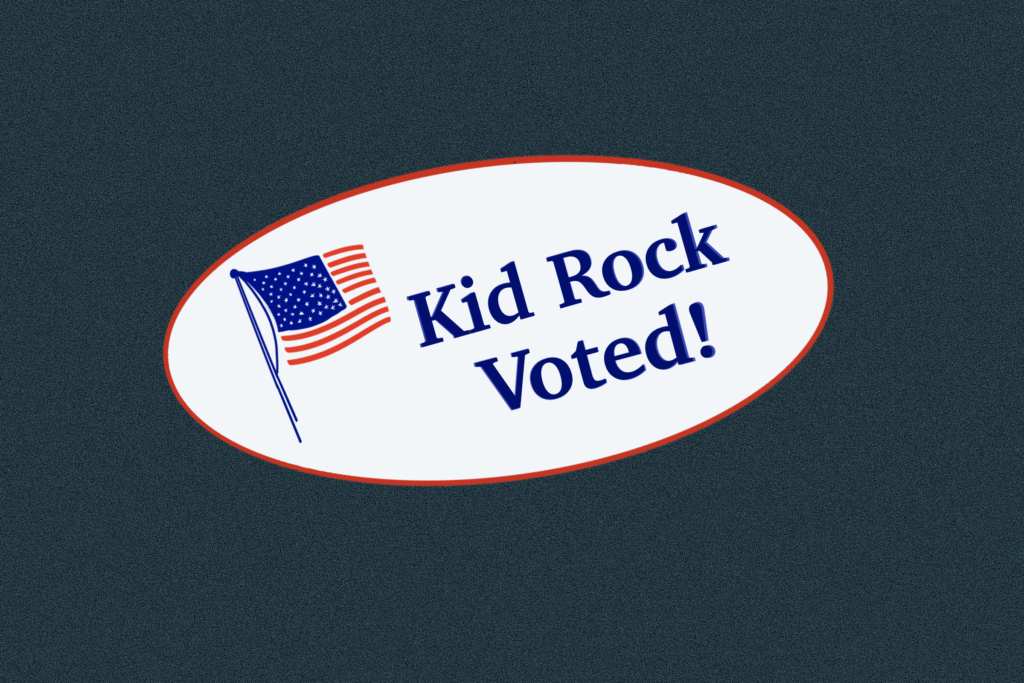The United States has a unique election culture. We have more freedom of speech than any other country on Earth, and our citizens can express their opinions without retaliation. From the countless political memes on social media to the classic “I Voted” sticker, many aspects of the U.S. election process reflect our views on the value of free expression. But one of the most controversial elements is celebrity endorsements, which have become a tradition in themselves.
Whether it's Robert De Niro or Kid Rock, celebrities of all kinds are vocal in their support of certain candidates. However, this behavior is not always well-received. Some say that celebrities use their influence to manipulate a docile audience into supporting their interests, without encouraging them to think for themselves. Many critics believe that celebrity activists should “shut up” and continue working in their own industries. However, freedom of speech applies equally to everyone, including celebrities.
For a republic to function effectively, people must have the right to freely support, criticize, and question the competence of their representatives. These freedoms must be protected at all costs. Suppression of opinion can lead to a government that does not truly represent the interests of the people.
By criticizing public figures and celebrities for expressing themselves (in ways they might not do if they had smaller followings), we threaten one of the foundational values of the democratic process. We shouldn't criticize celebrities, just as we wouldn't criticize ordinary citizens for expressing mainstream opinions. After all, celebrities have the same right to contribute to democracy as anyone else. And I would argue that by making their political views more accessible to potential voters, these celebrities foster a more politically aware fanbase.
Celebrity endorsements are nothing new. Throughout American history, celebrities and public figures have expressed political views through endorsements. Frank Sinatra's endorsement of Franklin D. Roosevelt in the 1930s and John Lennon's support of George McGovern's anti-Vietnam War presidential campaign in 1972 are testament to the historical roots of celebrities using their status to promote ideals.
We should not just accept but encourage celebrities to speak out and advocate for their philosophies. By speaking out, celebrities can become advocates for important social issues and garner support from their fanbase. In 2020, the death of George Floyd led to overwhelming support for the Black Lives Matter movement, in part due to the dedicated attention given by celebrities. Support from public figures is essential for the growth of social movements.
The concept of celebrity endorsements has attracted heavy criticism, with many arguing that celebrities and public figures are too “out of touch” with ordinary citizens.
It is not a good argument to say that celebrities' opinions are less valuable because they are wealthy or “naive.” While some celebrities may not be immediately empathetic to the struggles of ordinary people, the free expression of mainstream ideas should take precedence over any interest in silencing political dialogue. Moreover, celebrities' positions as trendsetters, influencers, and artists bring unique perspectives that contribute to the diversity of viewpoints that strengthen democracy.
This is not to say that any political statement by a celebrity should be welcomed or tolerated. Celebrities who cynically use their status for self-interest should be socially ostracized, just like others in the same situation. This is another important part of freedom of expression. Individuals do not have to care about those they disagree with or dislike. If a celebrity holds an opinion that does not align with the viewpoint of their audience, that audience has a constitutional right to reject and ignore their support.
Celebrities, like anyone else, have an unequivocal right to publicly endorse or support ideas and people that align with their personal moral values. Public figures who are cultivating their own brands have the privilege to endorse and support ideas that are beneficial to the world. And ordinary people, likewise, have the right to question those ideas and reject those that don't fit their own views. So whether it's George Clooney and President Joe Biden or Cardi B and Bernie Sanders, celebrities should be allowed to act as spokespeople for the people they support.
Mateo Alvarez is an opinion columnist. He majored in political science and is interested in analyzing the intersection of politics and culture. He can be reached at mateoalv@umich.edu.

